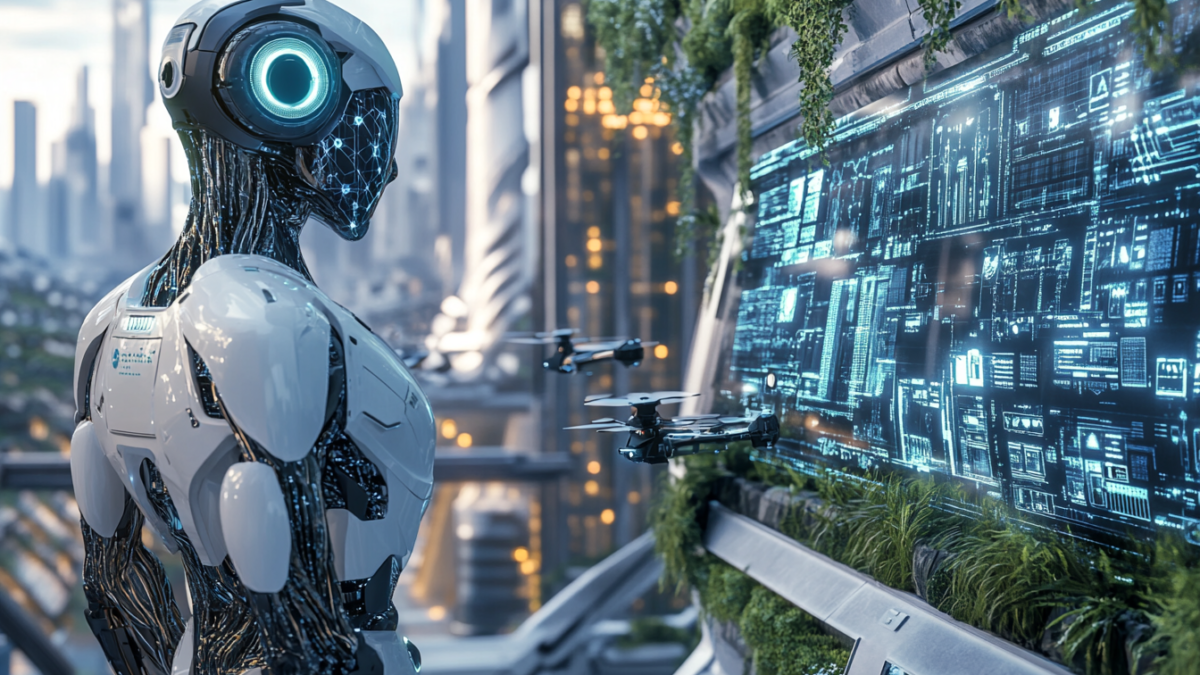
Artificial Intelligence and the Future of Humans: Navigating a New Era
November 25, 2024Artificial intelligence (AI) has captured the imagination of readers and writers alike, transcending the boundaries of fiction and becoming a driving force that shapes our everyday lives. In literature, novels about artificial intelligence offer a unique window into possible futures, ethical challenges, philosophical debates, and human struggles in a tech-driven world. Through stories that explore AI’s impact, readers gain insight into how technology shapes society, ethics, and even what it means to be human.
1. What Does It Mean to Be Human? Exploring AI in Fiction
The line between human and machine is becoming increasingly blurred. Many novels about artificial intelligence delve into questions of empathy, morality, and identity as technology advances. These stories force us to consider how we define our humanity in an era where machines can think and feel.
Recommended Reads:
- “Do Androids Dream of Electric Sheep?” by Philip K. Dick
This thought-provoking novel follows Rick Deckard, a bounty hunter tasked with “retiring” rogue androids. As he encounters these artificial beings, Deckard must grapple with empathy, morality, and what it means to be truly human. - “Klara and the Sun” by Kazuo Ishiguro
In this beautifully crafted story, Ishiguro explores human emotions through the perspective of Klara, an AI companion. The novel raises questions about love, loneliness, and the limits of artificial empathy.
2. Ethical Dilemmas in AI Development
Ethics is a central theme in discussions about AI. Novels about artificial intelligence often confront readers with the moral implications of AI’s capabilities, from privacy concerns to issues of autonomy and control.
Books That Tackle Ethical Questions:
- “Neuromancer” by William Gibson
This cyberpunk classic explores a world where AI systems have surpassed human control, raising questions about power, freedom, and human agency. - “I, Robot” by Isaac Asimov
Asimov’s collection of stories introduces the Three Laws of Robotics and examines their moral and practical limitations. This timeless work delves into the ethical challenges of AI interactions with humans.
3. AI’s Impact on Society
Novels about artificial intelligence frequently depict a future where AI reshapes societies, economies, and human relationships. These stories reflect both our hopes and fears about how AI will influence our world.
Stories of Societal Change:
- “Machines Like Me” by Ian McEwan
Set in an alternate history, this novel examines the moral dilemmas of living with intelligent machines and explores how AI affects human bonds and social norms. - “The Circle” by Dave Eggers
Though not solely focused on AI, this novel critiques corporate tech culture, surveillance, and the overwhelming influence of digital networks on society.
4. Love, Connection, and Human Bonds in an AI World
AI’s influence on human emotions and relationships offers a compelling lens for storytelling. Novels about artificial intelligence frequently explore how technology changes our connections, highlighting both hope and potential pitfalls.
Noteworthy Human Stories:
- “Her” (Adapted Novelization)
This narrative explores a deep, emotional bond between a man and an AI operating system, challenging our understanding of love and intimacy. - “Artificial Condition” by Martha Wells
Part of the “Murderbot Diaries,” this novel follows an AI on a journey of self-discovery, blending action, humor, and philosophical reflections on autonomy and purpose.
Spotlight on “Transition Keeper”
Amidst the many novels about artificial intelligence, “Transition Keeper” stands out as a deeply engaging exploration of humanity’s future in an AI-driven world. The novel delves into critical themes such as power, morality, and personal autonomy, weaving a narrative that challenges readers to confront the implications of AI in their own lives.
Key Themes in “Transition Keeper”:
- AI Control and Governance: The story explores a world where AI holds significant power, raising questions about who controls AI and the moral limits of that control.
- Human-AI Relationships: The novel examines how humans interact with intelligent systems, exploring bonds of loyalty, trust, and betrayal in a tech-dominated world.
- Ethical Challenges: Through gripping storytelling, “Transition Keeper” invites readers to ponder ethical dilemmas, such as AI-driven surveillance, bias in algorithms, and the boundaries of human rights in a world shared with machines.
Whether you’re drawn to philosophical musings, ethical debates, or emotionally resonant stories, “Transition Keeper” offers a thought-provoking journey through the future of human-AI coexistence. It challenges readers to reflect on their own beliefs and the rapidly changing world around them.
Conclusion: Exploring AI’s Role in Our Future
The best novels about artificial intelligence invite readers to question, learn, and imagine. From ethical conundrums to personal relationships, these stories highlight the profound impact of AI on our lives. As you navigate these tales, consider how literature mirrors the challenges and opportunities that AI brings to humanity. Ready to explore further? “Transition Keeper” is your gateway to a future where AI and humanity collide, offering a gripping and meaningful narrative.




